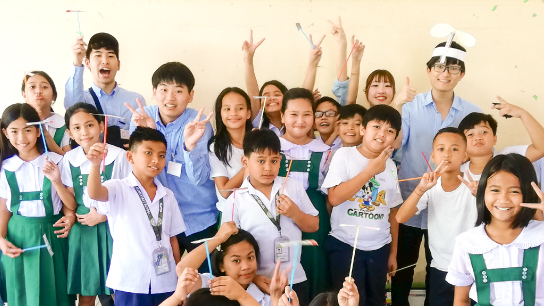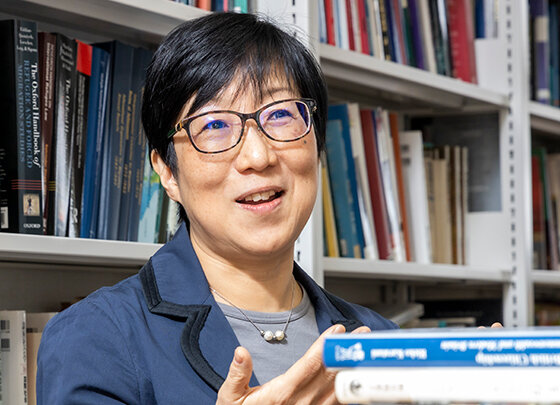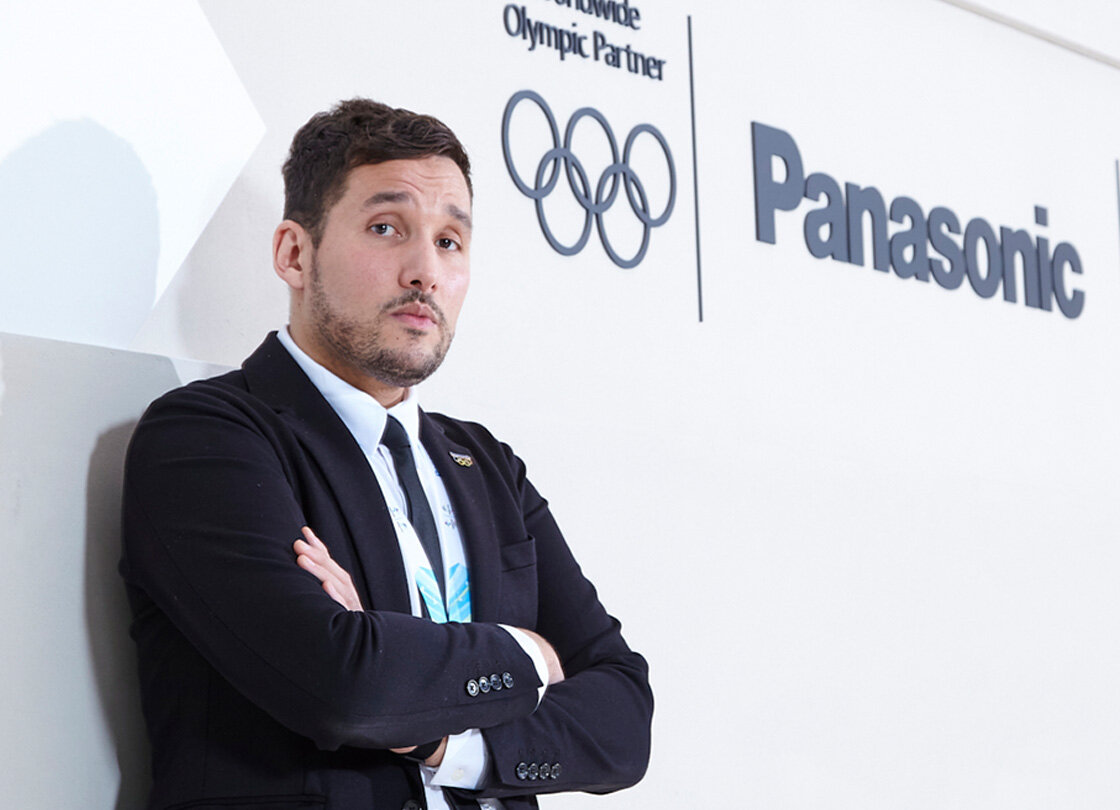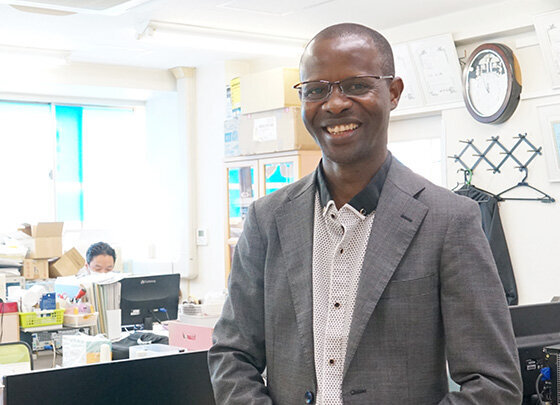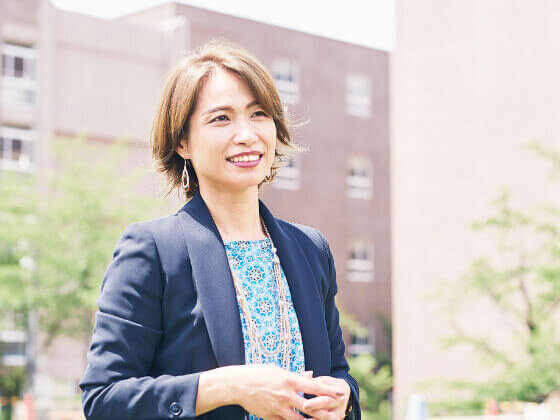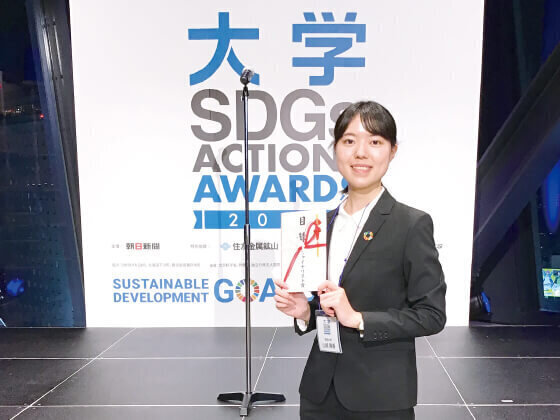KANDAI
HEADLINES
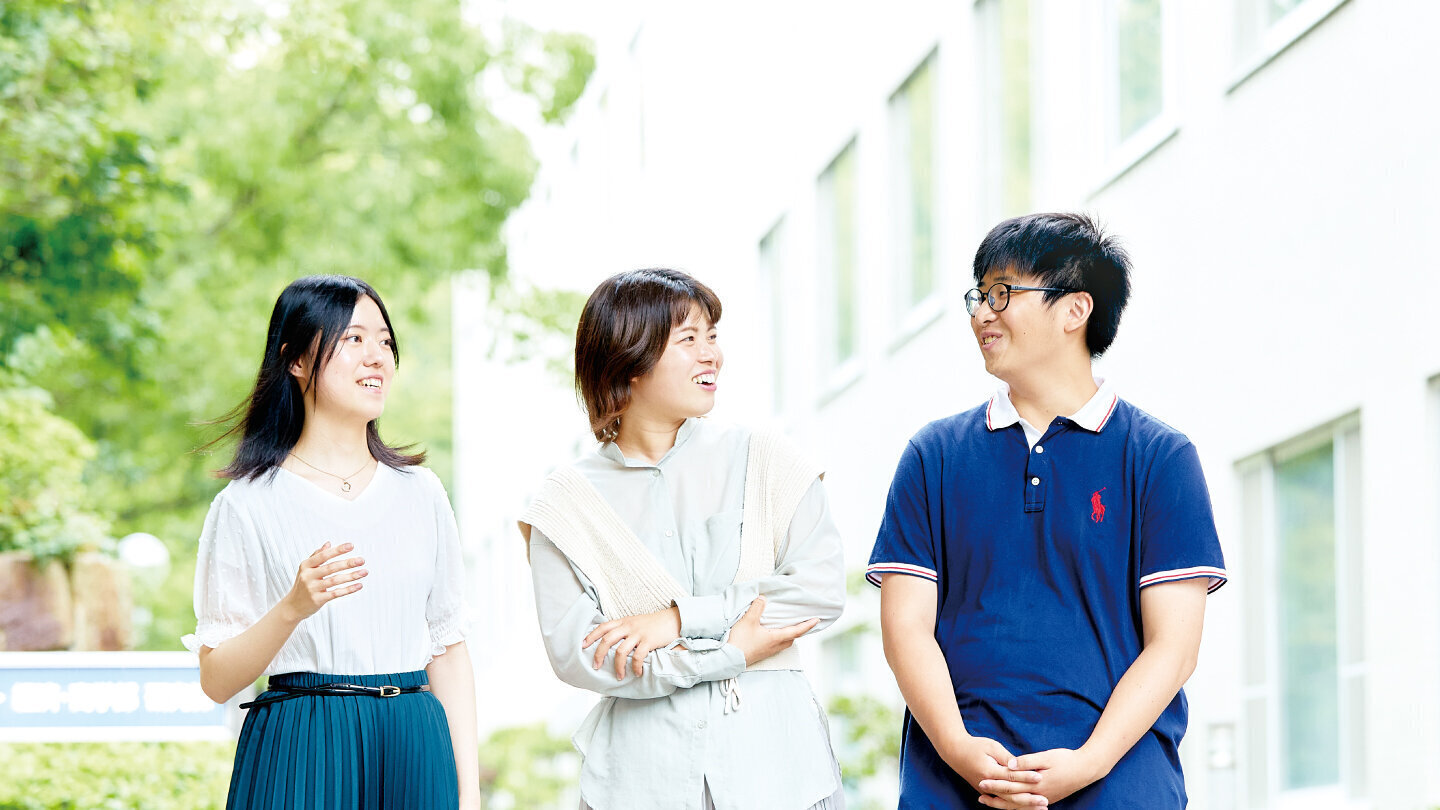
- GLOBAL
- PERSON
Using a resume with no gender column to think about gender A proposal by finalists of the University SDGs ACTION! AWARDS
International Cooperative Volunteer Student Staff icvss, Kansai University Division of International Affairs
In February of 2020, the International Cooperative Volunteer Student Staff: icvss-a Kansai University student organization for international cooperation-won the finalist award at the Asahi Shimbun Company's University SDGs ACTION! AWARDS in 2020. The students proposed a resume template without a section specifying the applicant's gender. This was created as a way to promote gender equality. Let's find out how everyone involved in the project felt.
We're probably overlooking small gender problems.
The icvss is a student organization that engages in activities intended to increase interest in international cooperation and contribution. The organization's members are focused on issues such as poverty, education gaps, discrimination, and other various issues. But why did the students focus on gender problems?
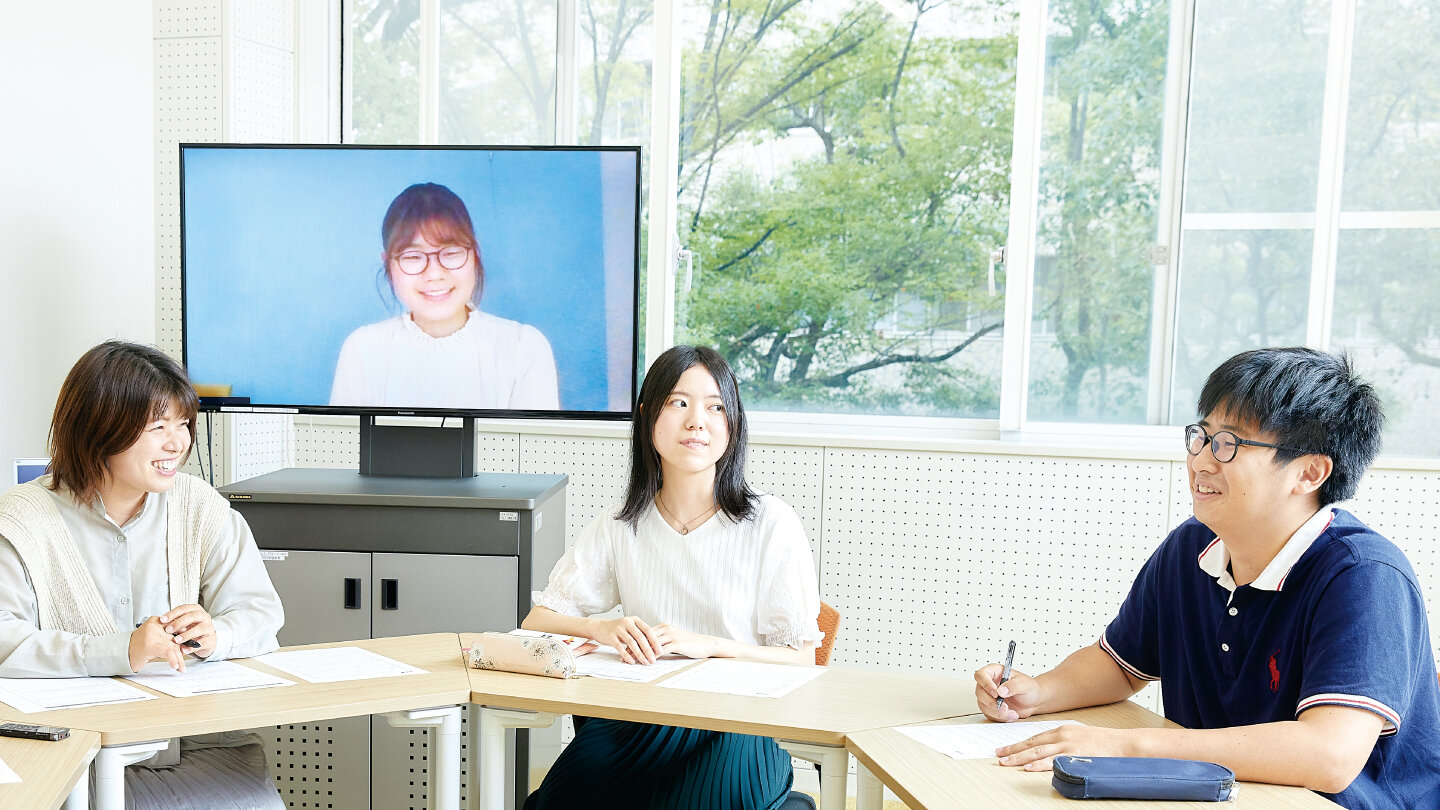
- Kano
-
The purpose of the icvss is to deepen the understanding of international cooperation throughout Kansai University. That's why we wanted to take on a theme that is both familiar to and easy for students to understand. I remember this one time when I was watching a performance by our cheering squad at a school festival. When a female member took the stage dressed in a school uniform typically worn by boys, someone in the crowd said, "Hey, there's a girl up there," clearly sounding surprised. That seemed a little wrong to me, and that's when I noticed that gender equality-one of the SDG* objectives-is a problem that affects all of us.
It's not like there's a rule that girls can't be on the cheering squad, but such girls draw attention just because it looks unusual. Maybe that's a small thing, but it made me feel like our school environment might be making it difficult for both boys and girls to be themselves. - Yamazaki
- Plus, when the icvss members discussed the kinds of problems they're interested in, a lot of people mentioned gender problems. And there are definitely everyday situations when I feel like girls are either at a disadvantage or end up receiving preferential treatment due to their gender.
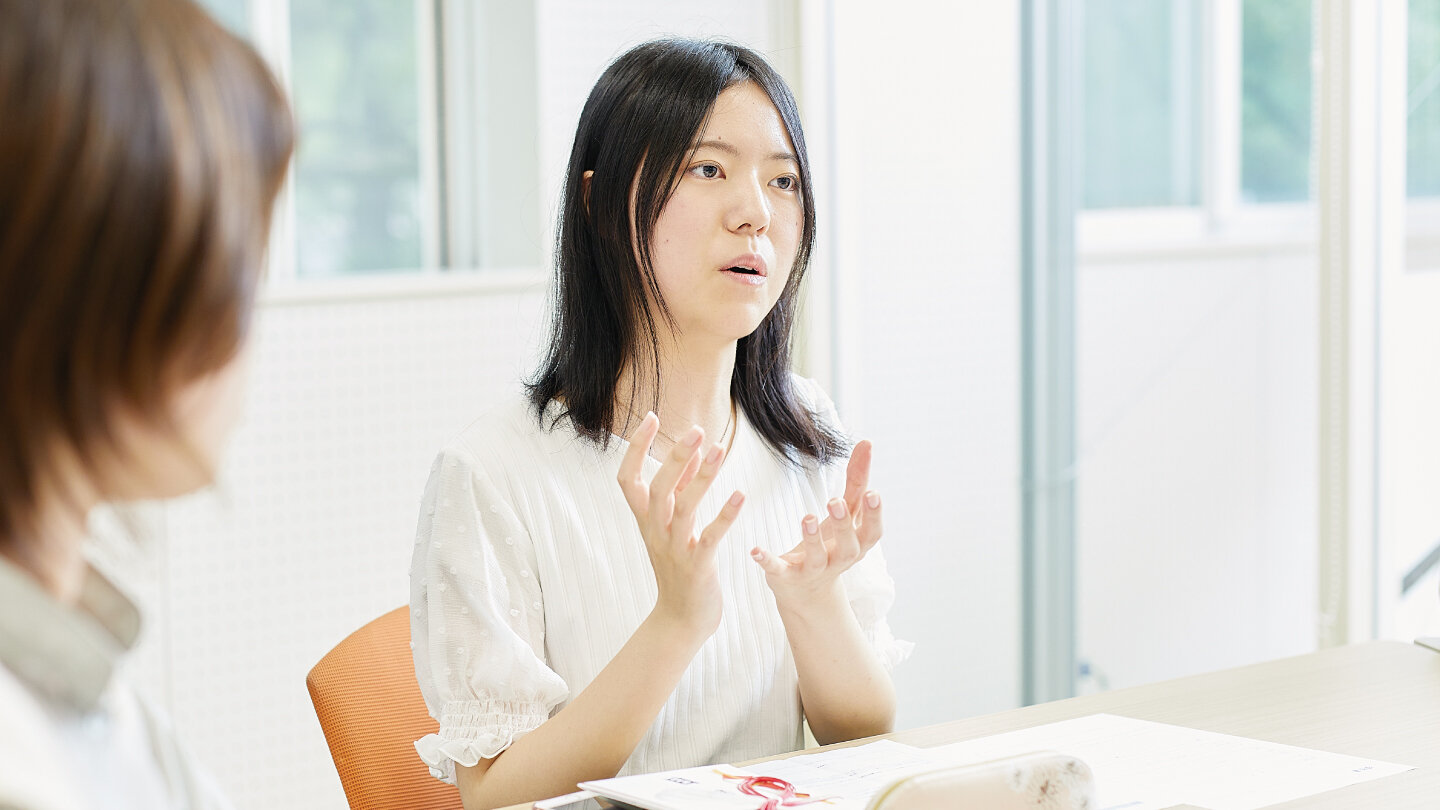
* What are the SDGs?
The SDGs are Sustainable Development Goals that are shared by the international community. They were adopted at a UN summit in September of 2015, and they consist of 17 goals, which are organized into 169 specific targets intended to help achieve them. One of these 17 goals is the achievement of gender equality.
A lack of awareness by males noticed during activities
In contrast, Shitamachi, a male member of the organization, said that he felt like gender problems only affected him as someone watching from the sidelines immediately after deciding on them as a theme.
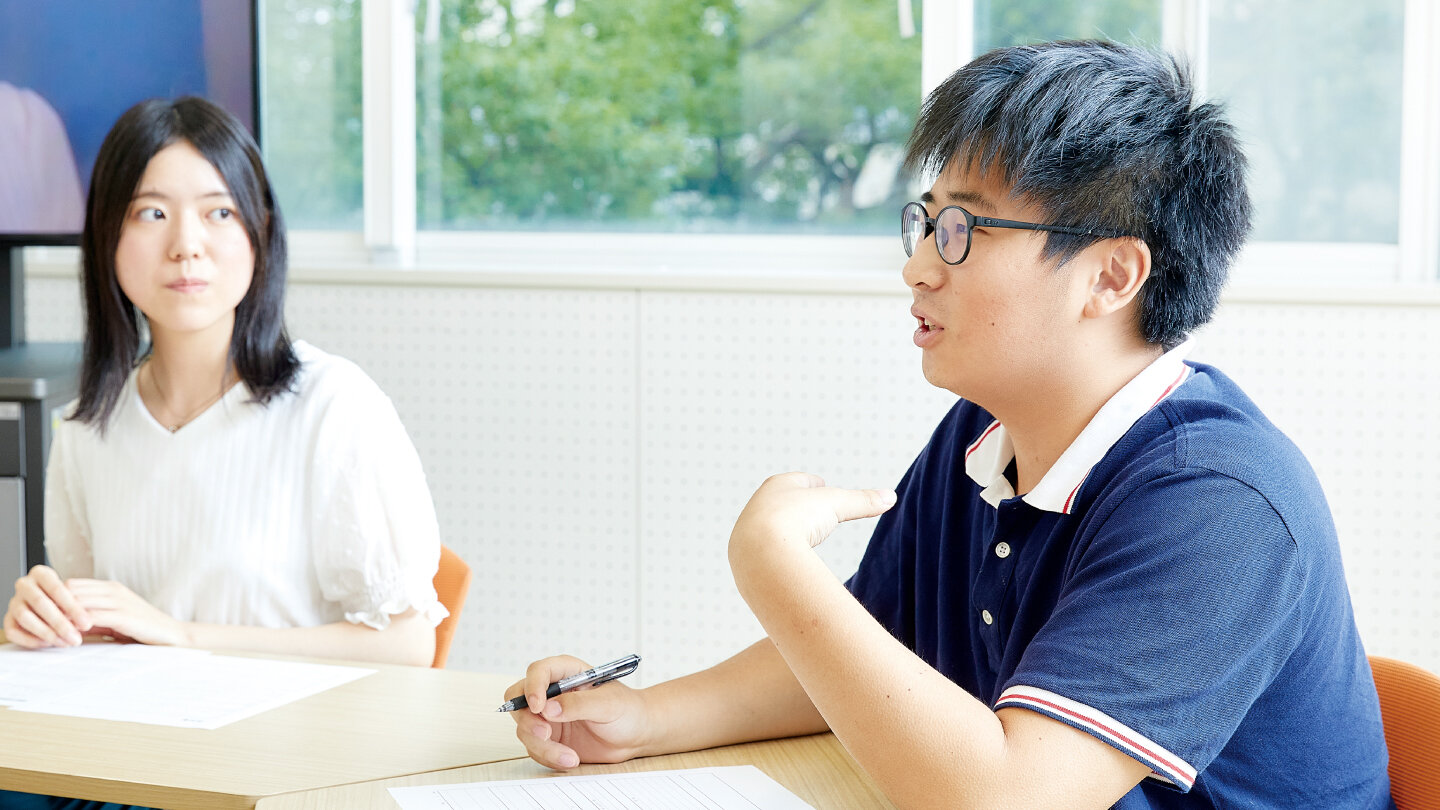
- Shitamachi
- At first, I felt like gender problems weren't especially relevant to me. But―as I discussed these issues with the other members of the icvss―I often found myself realizing that gender problems are a bigger problem than I thought, and I felt like males might not have enough awareness of this issue.
In an attempt to deepen his understanding of gender problems, Shitamachi decided to participate in a seminar on the social advancement of women.
- Shitamachi
- However, I was denied entry to the event site and told that the seminar was for women only. Before, I doubt that would have really bothered me at all, but―as a result of starting to consider the issue of gender problems―being denied entry felt a little wrong to me. It occurred to me that bridging the gap between men and women could be the first step in resolving gender problems. That was the first time I really felt like gender problems affect me personally.
The gender problems that affect university students the most are related to job hunting.
As the icvss members considered gender problems, they were introduced to the University SDGs ACTION! AWARDS by an employee of the Division of International Affairs. This major competition attracts participants from universities throughout Japan. Since the competition draws a lot of interest, the icvss members decided to enter, hoping to take advantage of the opportunity to raise awareness of their activities both on and off campus.
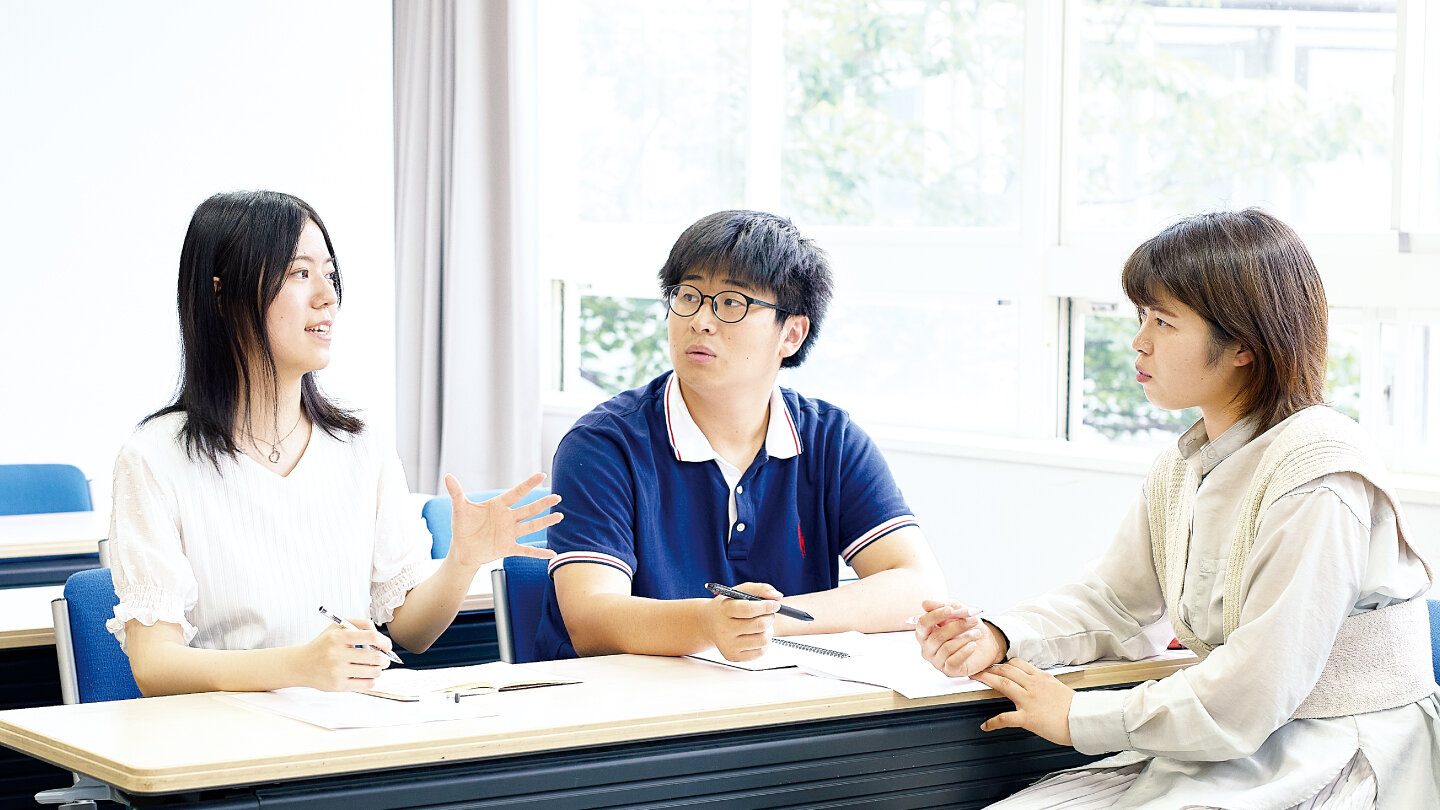
- Yamazaki
- While I was collecting information to prepare for the competition, I noticed that there seem to be a lot of people who experience the gender gap when job hunting. One example is the clothes worn during job hunting. The standard style is for men to wear slacks and women to wear skirts, but a lot of people feel like there is something wrong with that.
- Kano
- Job hunting is a concern that is important and highly relevant to university students like us. Therefore, we thought that we could get more students to pay attention to gender problems by coming up with a plan to resolve these job hunting issues.
Issues of Japanese resumes compared to resumes elsewhere in the world
One issue that became clear as a result of pursuing research and discussion focused on job hunting is the standardized format of resumes.
- Iguchi
- The standard format for a Japanese resume includes a gender section and a place to stick an ID photo. Most Japanese people consider this perfectly natural, but―in the USA and UK―there's not necessarily a gender section or even a predetermined resume format.
- Yamazaki
- Once we homed in on and researched the difference between overseas and Japanese resume formats, we learned that Japan lags behind much of the rest of the world in terms of gender awareness. In the Global Gender Gap Report 2020 ranking published in December of 2019, Japan was in 121st place out of 153 countries.
- Shitamachi
- Personally, because I wasn't even interested in gender problems to begin with, it occurred to me that what everyone considers perfectly natural might very well be wrong. Therefore, we decided to create a resume with no gender section.
The icvss also discussed whether there were unnecessary items other than the gender section. Also, they discussed whether other items should be included in the resume. To research this further, they asked Kansai University students fill out a questionnaire and respond to questions based on these issues.
- Shitamachi
- The Japanese resume format was originally specified by the Japanese Industrial Standards and was standardized for the convenience of employers. But I wonder what kind of resume would enable individual students to fully convey what makes them so appealing. I think it seems natural for there to be a resume format designed from the perspective of students.
Based on the results of the questionnaire, some students indicated that―in addition to gender and ID photos―it should not be necessary to indicate whether one has a spouse or dependents or to fill out information on one's educational background. The team applied those opinions while creating a new resume format.
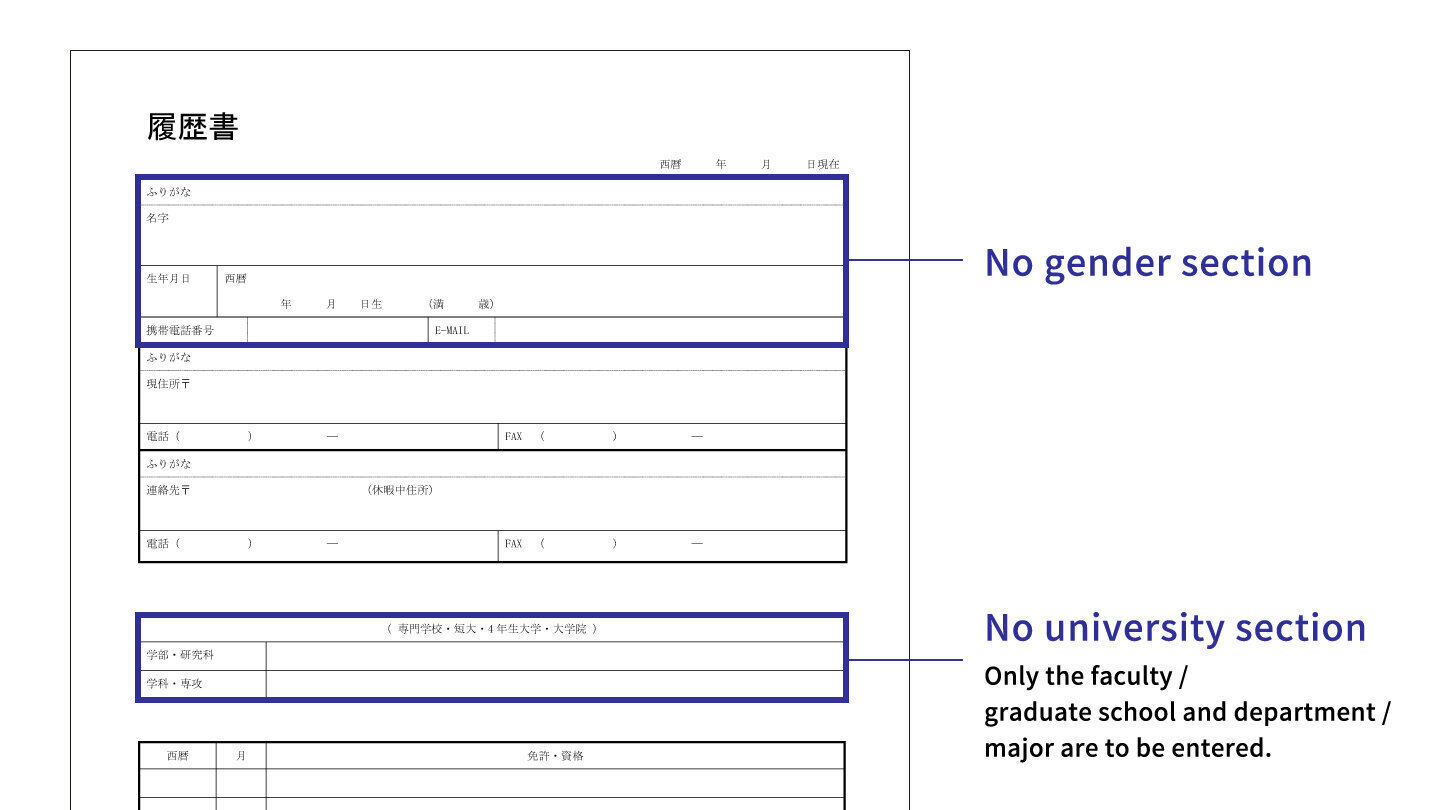
We beat over 90% of the competitors to win a finalist award
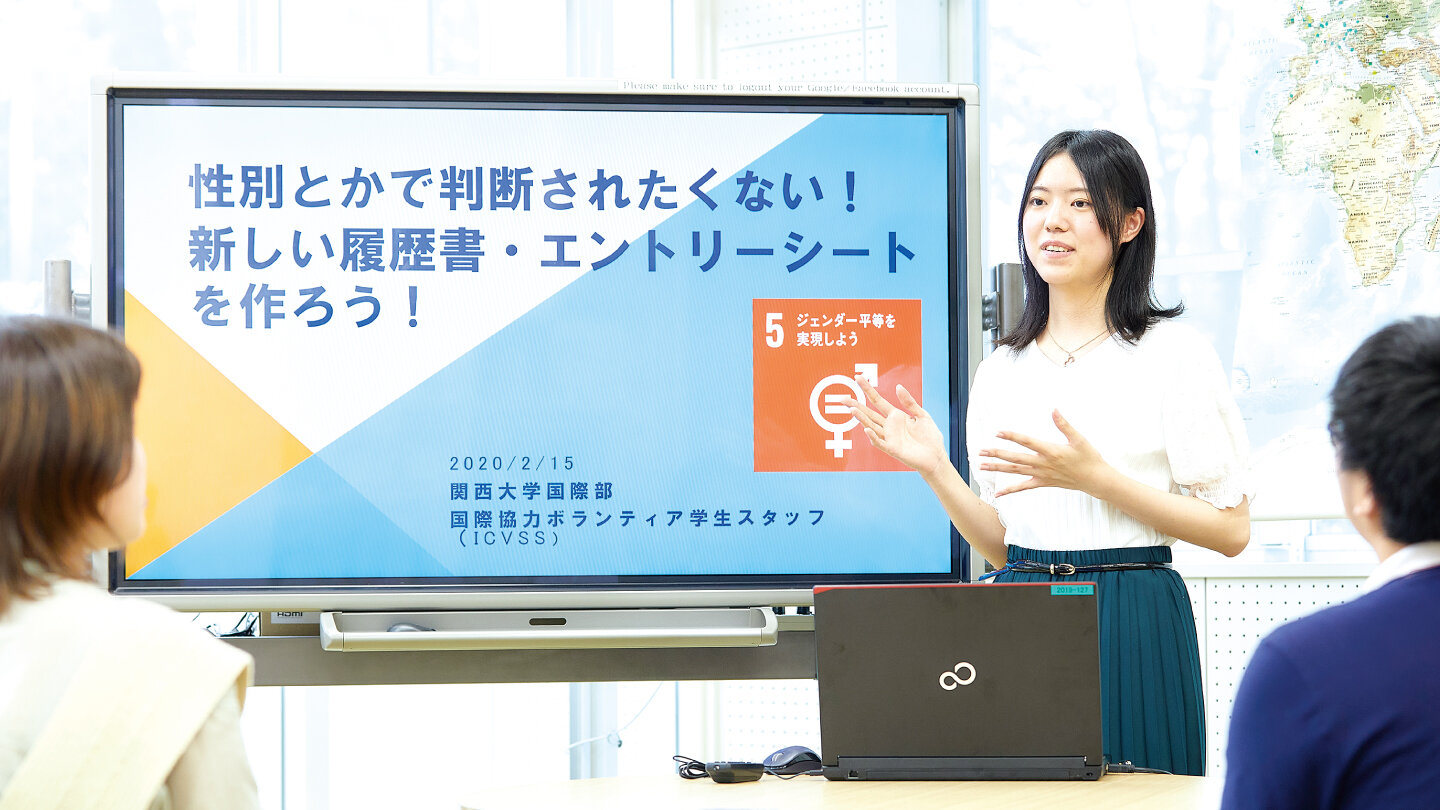
The team's project, which was called I don't want to be judged based on my gender! Let's make a new kind of resume and entry sheet!, was one of 12 projects selected from among over 100 entries as University SDGs ACTION! AWARDS finalists, and Yamazaki presented the project.
- Yamazaki
- When one talks about creating a resume from the perspective of students, it sounds like something based solely on the convenience of students. Therefore, when it came time to announce our project, I was careful to incorporate the examples of various foreign countries to try to associate the project with international and social problems and evoke a sense of crisis.
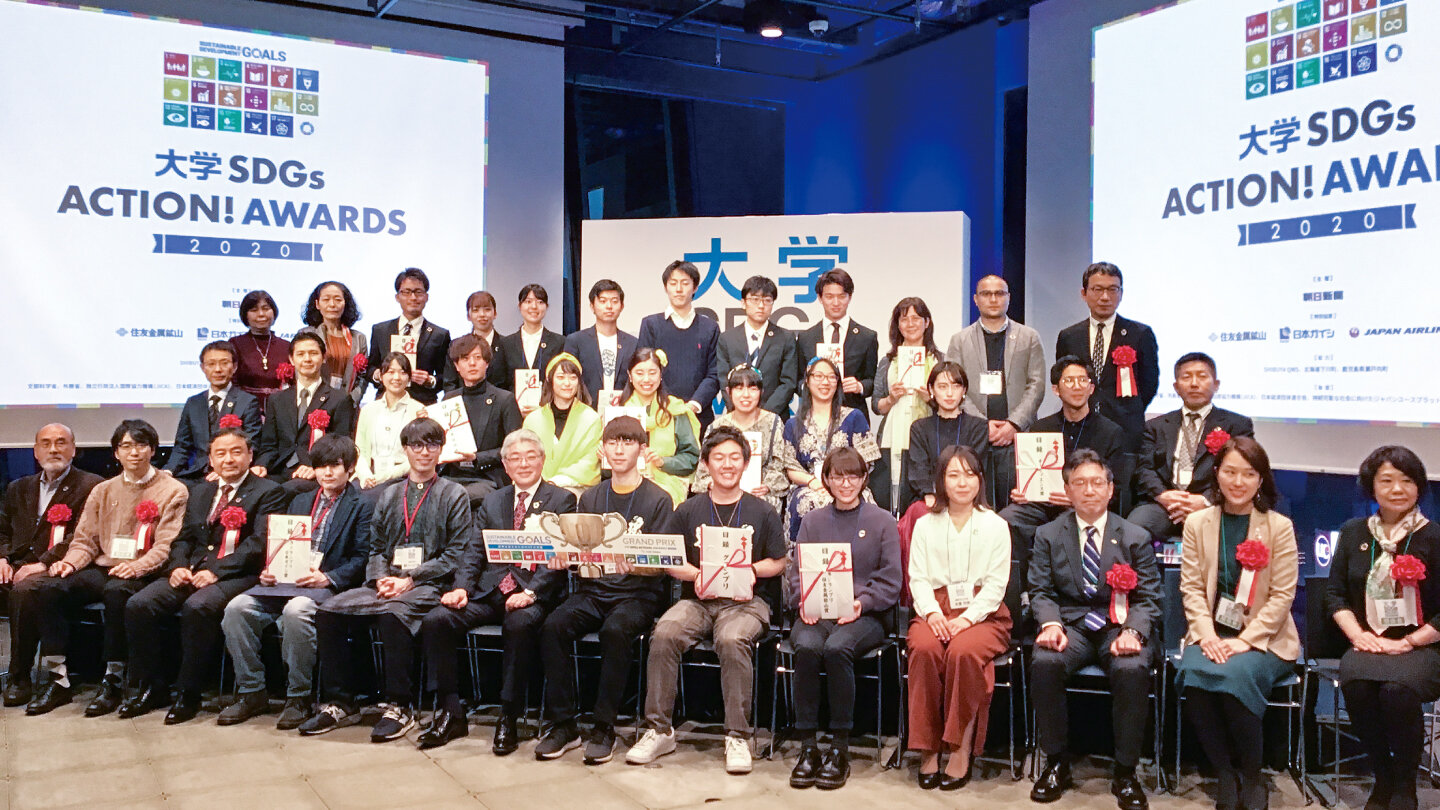
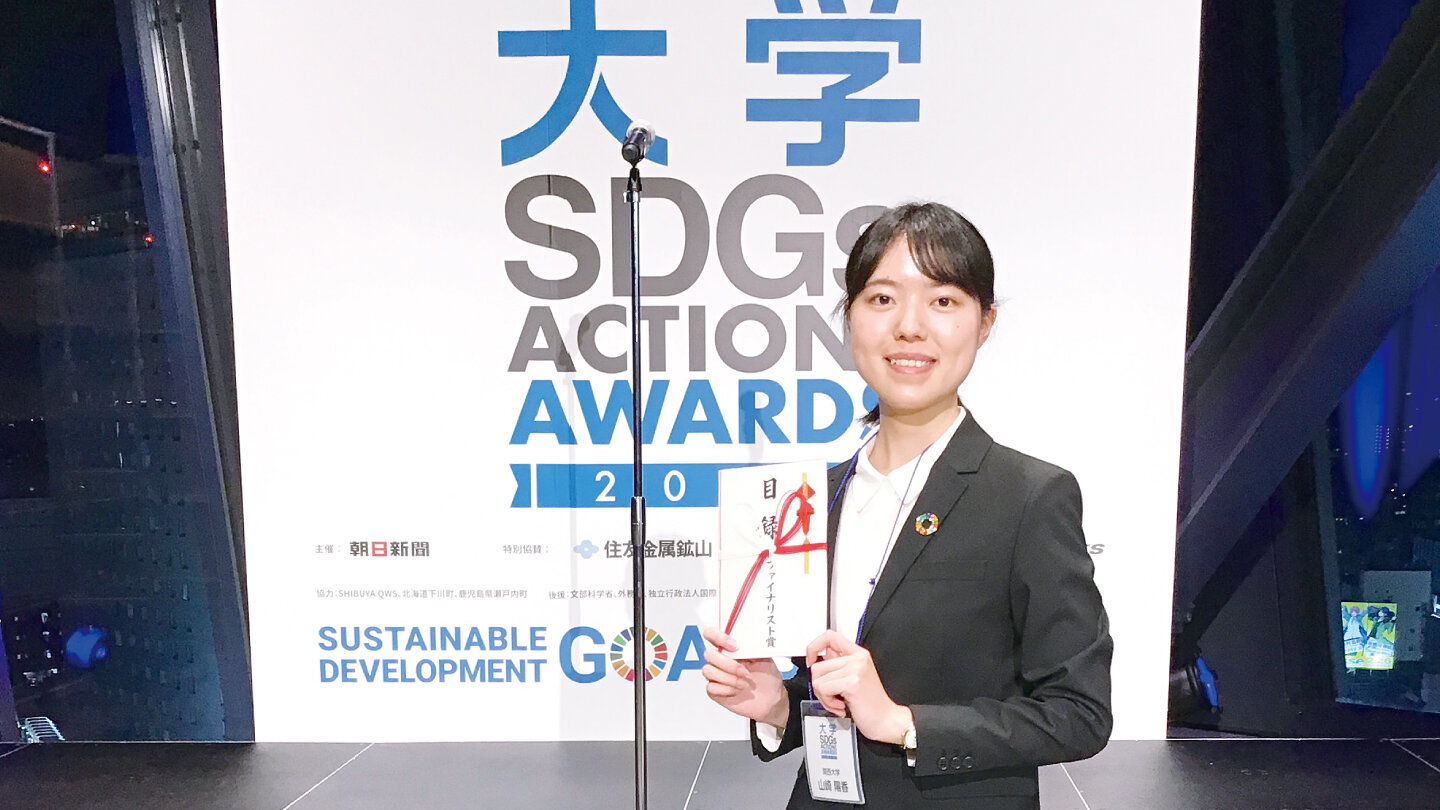
Although the team unfortunately did not win the grand prize, they did win a finalist award. After the icvss project announcement, a judge even took Yamazaki's hand and was quite emotional when she asked her to accomplish the project at all costs. That was the moment when the team really felt that there were people out there in society who are aware of this issue.
Questioning what one considers to be common sense and fostering positive gender views
A personal awareness of gender problems has taken root within the team members through their recent activities, and they feel that this shows major growth.
- Iguchi
- Through this project, I finally had the chance to squarely face issues I have considered vaguely wrong until now and see them for the problems they are. I feel like the project gave me the ability to really stop and think about whether my stereotypes are actually correct.
- Shitamachi
- One result of participating in this project is that I finally noticed that what I consider common sense is not necessarily correct. I'm a science graduate student, and I became a member of the icvss after I graduated from my faculty. International cooperation is not directly related to my major. The fact that I nevertheless had the opportunity to take on a challenge like this project feels like it is due to Kansai University's wealth of student activities and wide breadth of learning.
- Iguchi
- Another important thing is that Kansai University frequently holds lectures and seminars on SDGs and even has an SDG book area in the library. Our campus basically offers plenty of learning opportunities to anyone willing to take the initiative.
- Kano
- Eventually, I hope to propose that companies, local governments, and other real-world organizations use the resume with no gender section we created. Even if the resume is not adopted immediately, I hope that our recent activities lead to an increase in the number of people paying attention to gender problems so that we can ultimately achieve a society where everyone can live as they see fit.
The team members hope that their resume with no gender section will help increase everyone's interest in gender problems. Driven by that wish, the team is continuing to work on updating the resume and facilitating its spread. Although it's true that Japan is behind much of the rest of the world in terms of gender quality, more and more people have started to view this as a social problem in recent years. The activities of the icvss are one example of this, and such activities are expected to contribute to fostering positive gender views.
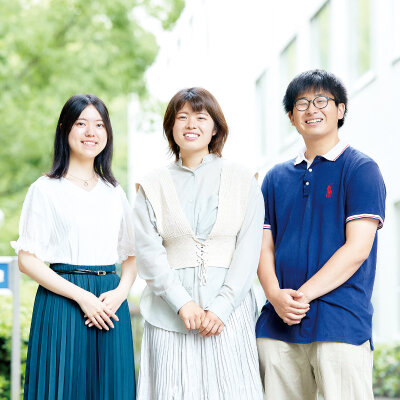
-
Members of the icvss (from the left)
Haruka Yamazaki, fourth year student of the Faculty of Law
Ayane Kano, third year student of the Faculty of Policy Studies
Ayato Shitamachi, second year student at the Graduate School of Science and Engineering first-semester Ph.D. program
Online participant: Maho Iguchi, third year student of the Faculty of Policy Studies -
* The indicated years and affiliations were current at the time of this interview.
- To enrolled students and future Kansai University students -
Email: kansai-u1886@ml.kandai.jp
The icvss is recruiting members who are interested in international cooperation. If you would like to participate in these activities or hear more about them, feel free to contact the Division of International Affairs (Bldg. 1, Area 2, 2nd floor).
Related articles
- TOP
- About Kansai University
- Public Relations
- List of Headlines
- Headline Article




